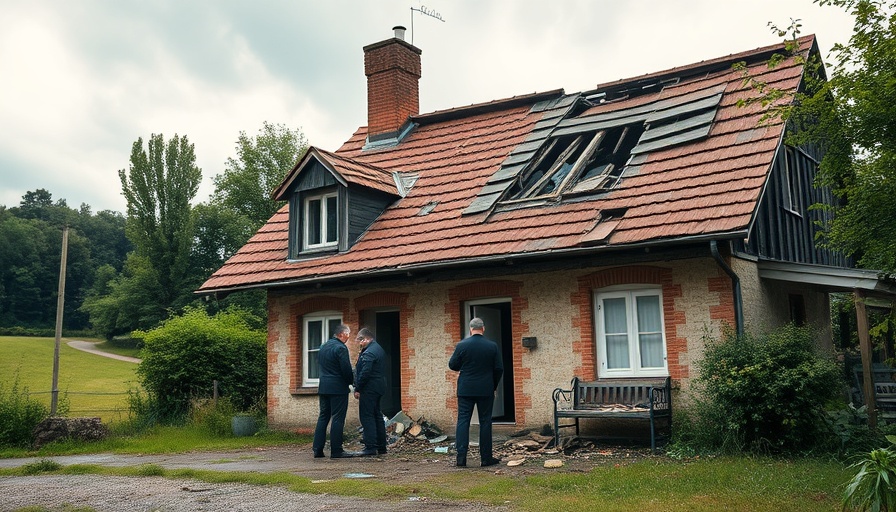
Russia's Slow Escalation Tactic: A Game Changer in the West?
In recent weeks, the world has observed an alarming shift in carefully orchestrated assaults by Russia against Ukraine, as well as a blatant disregard for the borders of NATO member Poland. This pattern raises serious questions about President Vladimir Putin's strategy and its implications for global security.
Understanding the Strategy: Testing Boundaries
Russian forces have been strategically escalating aggression at a gradual pace. Debate surrounds the rationale behind this measured approach, as analysts suggest that by striking increasingly sensitive locations—like NATO-aligned countries—Russia is gauging the West's responses without triggering a full-scale war. The attacks on Poland, including the recent drone incident that prompted NATO fighters to intercept them, are a chilling reminder of how close the situation has become to direct confrontation.
Historical Context: A Return to Tension
This tactic is reminiscent of the Cold War mentality—the fear of a sudden, large-scale military action. However, instead of a swift strike, Russia appears to be probing the West’s defenses, collecting data on the limits of NATO's response. Such methods suggest that Russia has assessed the current political climate as a window of opportunity where it can act with relative impunity.
A Show of Strength: Reactions and Risks
With each probe into Western territories, such as recent firings of drones at key Ukrainian and Polish targets, the question looms: What will it take for the West to respond decisively? Ukrainian Foreign Minister Andrii Sybiha emphasized that Putin's lack of real consequences for past aggressions emboldens these actions. As a result, both Ukraine and NATO may need to adapt strategies that showcase unified strengths.
Future Predictions: The Danger of Complacency
As military scenarios evolve, military analysts speculate that continual Russian aggressiveness could foreshadow a broader conflict if unchecked. Additionally, experts assert that without a robust counter-response from NATO, the risk of normalized aggression will increase, fuelling further reckless initiatives from the Kremlin.
Local Perspectives: What It Means for Poland and Ukraine
The drones crossing into Polish airspace serve as both a violation of sovereignty and a wake-up call for Eastern Europe. For Poles, who remember previous Soviet domination, this slow escalation is not just political; it resonates deeply at a societal level, invoking fears of renewed conflicts in a region still fragile from historical tensions.
Conclusion: The Importance of a Unified Front
With tension heightening in Eastern Europe, the need for a unified diplomatic and military stance from Western allies is crucial. The ramifications of a vulnerable NATO could shift the balance of power in Europe, encouraging further Russian transgressions. It is essential now for officials to not only respond to these aggressive acts but to also convey a strong message of resistance against future threats.
As we observe these developments, it becomes clear that understanding the intricacies of international relations goes beyond mere political statements. Engaging communities, sharing insights on the evolving dynamics, and fostering solidarity are vital to ensuring a safe and secure Europe for the future.
 Add Row
Add Row  Add
Add 




Write A Comment